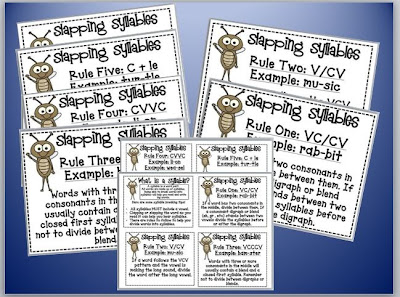I recently read this book by the team of Douglas Fisher, Nancy Frey and Diane Lapp. I appreciate the way these researchers tackle difficult educational issues and then lead us to practical solutions. They make some interesting and well founded points regarding text complexity. Through this book, the authors discuss what exactly makes a text complex and then suggest ways to help students navigate through these more challenging reading tasks.
So we know that reading involves multiple cognitive tasks and it requires SO much more than just reading the words on the page. Yet, that is where our readers must start.
Decoding is a prerequisite skill that can and must be taught in these early grades. Being able to decode words easily and efficiently will help our readers free their brains, allowing them to focus on the complex thinking involved in understanding difficult texts.
My plan is always to introduce key decoding strategies early on in the third grade year so that I can then work on coaching them as they attempt to use these as they read during guided reading sessions. In third grade, students are exposed to many multi-syllabic words. When faced with this decoding challenge, one of the best strategies to use is chunking or breaking words into smaller syllable parts.
This year, I am going to introduce this idea with the song, "Big Word - You Don't Bother Me!" This is sung to the tune of "Shoo Fly -Don't Bother Me!"
Third graders are assessed on their ability to determine number of syllables.
We will practice breaking multi-syllabic words by slapping the syllables with fly swatters as we count them. You can find fun flyswatters at a dollar store.
I will also expose them to syllable breaking rules or patterns during minilessons. Students will glue rules into our reading journals and they will record examples that we find in the books we are reading.
I'll keep these patterns posted so that we can refer to them as we read.

Finally, we will play games that will give students opportunities to apply these rules and practice breaking words in a fun way.
I'm including this set in my TPT store. You can check it out here:
How are you preparing for the challenge of increased reading rigor?
Would LOVE to hear from you!
Email me!









 youngdor8@gmail.com
youngdor8@gmail.com



















